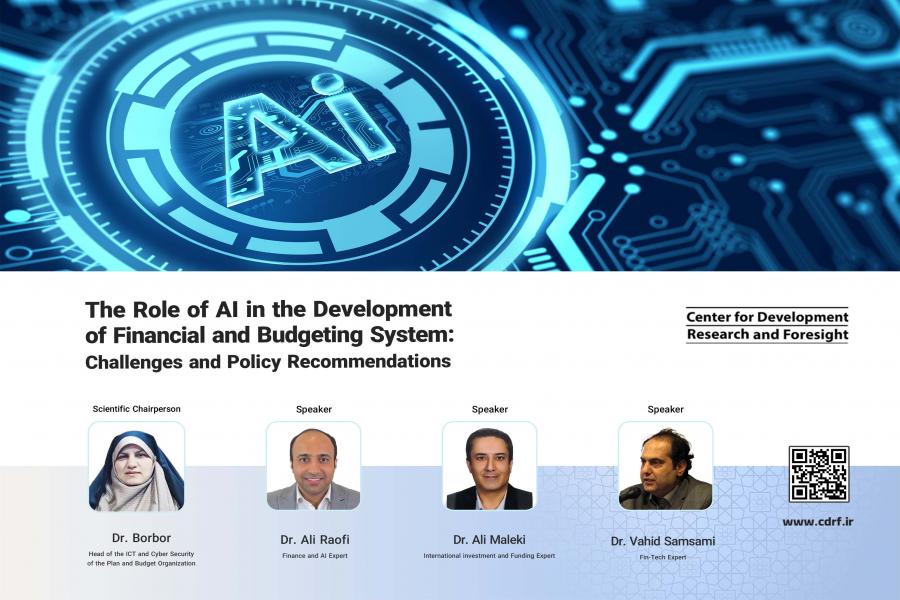
-
بررسی آییننامهها و دستورالعملهای برنامه هفتم پیشرفت
-
بررسی عوامل موثر بر افزایش تصادفات و تلفات جادهای و سوانح رانندگی و دادهکاوی تلفات انسانی
-
سازماندهی و بازآرایی فضایی آموزش عالی کشور
-
به روز رسانی سند ملی آمایش سرزمین
-
انجام مطالعات مناطق آزاد به عنوان نواحی پیشران اقتصادی کشور
-
اصلاح ساختار بودجه و پیاده سازی نظام یکپارچه مدیریت اطلاعات مالی دولت (IFMIS)

Artificial intelligence (AI) has emerged as a transformative technology, extensively studied and developed over the past seven decades. Its growing prominence has rendered it an indispensable tool for governments worldwide. While AI's potential to enhance decision-making power and quality remains an ongoing area of inquiry, its application in certain policy domains, such as public budget drafting, has received limited attention. This paper delves into the untapped potential of AI in budget allocation, a critical aspect of financial policy.
AI's ability to swiftly and accurately analyze vast amounts of data empowers governments to make informed budget decisions. This capacity stems from AI's prowess in identifying patterns, trends, and anomalies in financial data, enabling more effective resource allocation. Furthermore, AI's risk management capabilities can foster enhanced policy effectiveness and efficiency in the monetary, financial, and banking sectors.
In recent years, Iran has also explored the potential of AI applications. A scientific conference held by the Center for Development Research and Foresight, drawing insights from scientific directors and speakers, yielded the following recommendations for leveraging AI in financial system development and budgeting
The key takeaways are listed as below:
- Enhanced Data Availability and Accessibility: The increasing volume and accessibility of economic data will be instrumental in fueling AI adoption. Public sector entities should prioritize data processing and dissemination to empower AI utilization.
- Rigorous Testing and Training: Comprehensive testing and training are essential for developing robust AI algorithms and establishing unbiased data usage. This includes creating feedback loops to continuously refine AI models and ensure their accuracy.
- Cultural Shift towards Data-Driven Problem-Solving: Fostering a national culture of data-driven problem-solving is crucial for maximizing AI's impact. This requires concerted efforts in education, from schools to universities, to promote data literacy and analytical thinking.
- Transparent Data Governance and Open Data Systems: Transparent data governance frameworks and open data initiatives are essential for enabling AI utilization. National data should be readily accessible to relevant organizations to facilitate informed decision-making.
- Infrastructure Development and Knowledge Acquisition: Dedicated funding and resources should be allocated to develop the necessary infrastructure and acquire expertise in AI for public sector applications. This includes investing in training programs and research initiatives.



